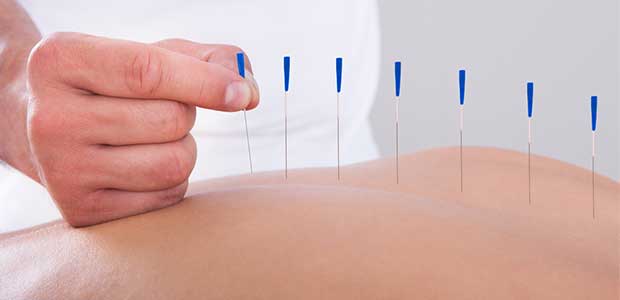
CMS Proposes Coverage of Acupuncture as Alternative to Prescription Opioids
The Centers for Medicare & Medicaid Services proposed to cover acupuncture for patients with chronic low back pain rather than prescription opioids.
A new proposed decision by the Centers of Medicare & Medicaid (CMS) would add access to acupuncture as an alternative to prescription opioids for people battling with chronic low back pain who are enrolled participants either in clinical trials sponsored by the National Institutes of Health (NIH) or CMS-approved studies.
Currently, acupuncture is non-covered by Medicare, but evidence shows that acupuncture has grown in recent years making it a suitable alternative to prescription opioids. Questions remain if the treatment will work on most patients, so CMS will continue to collect data on the patient outcomes.
“The proposal represents the Trump Administration’s commitment to providing Americans with access to a wide array of options to support their health,” said HHS Secretary Alex Azar. “Defeating our country’s epidemic of opioid addiction requires identifying all possible ways to treat the very real problem of chronic pain, and this proposal would provide patients with new options while expanding our scientific understanding of alternative approaches to pain.”
Acupuncture is a treatment in which practitioners stimulate specific points on the body, most often inserting thin needles through the skin. CMS has been actively collaborating with NIH as part of the Opioids Workgroup and Evidence Generation Workgroup to launch studies on acupuncture for the treatment of chronic lower back pain in adults 65 years of age and older.
"Chronic low back pain impacts many Medicare patients and is a leading reason for opioid prescribing," said CMS Principal Deputy Administrator of Operations and Policy Kimberly Brandt. "Today’s proposed decision would provide Medicare patients who suffer from chronic low back pain with access to a nonpharmacologic treatment option and could help reduce reliance on prescription opioids."
The National Safety Council applauded the CMS' willingness to start testing payment for acupuncture treatment as a way to reduce opioid use.
"The Council stands ready to support the Department of Health and Human Services as it tests its payment program," NSC said in a statement. "NSC encourages all employers to ask for alternative pain treatment options to be covered in their benefits packages. Additionally, NSC urges all insurance providers to follow the example CMS is setting so all Americans suffering from pain have a host of non-addictive alternatives for treatment."